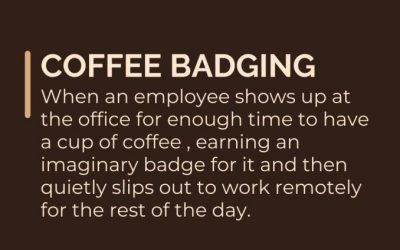Have you become an interview robot? It can be easy forget the aim of what you are wanting to achieve when conducting an interview – especially when you have sat through so many. If you are in need of an interview refresher, you have come to the right place. It can be difficult to determine what will equate to a good IT candidate. Here we have compiled a few pointers to finding a great candidate and the best questions to ask in order to prize out the information you really need from the candidate.
- “Outline any current issues or trends in technology”
Ask the candidate to outline some current issues that are impacting upon the technology industry. You are not focusing on the specific issues they discuss, but their ability to identify these issues is key. This demonstrates reactiveness and outlines how the candidate would react to any changes in technology that would impact upon them.
- “What did you do when you were asked to undertake a task you didn’t understand?”
This question provides the candidate with an opportunity to demonstrate how they problem solve and overcome issues when faced with them. You can assess how well you feel the candidate overcame the issue. Did the candidate overcome the issue through thought-out strategy and planning? Or did the candidate leave the issue to spiral until someone else became involved. Determining the quality of a candidate’s problem solving skills is crucial in determining whether they will be a good fit for the role and for your organisation.
- “Outline a time you were asked to complete a task or project that you had no previous experience in”
This could be regarding a new technology, a new industry or a project they had never undertaken before. This is a great follow up from the previous questions as it allows the candidate to further their explanation of how they respond to change and overcome issues. It is good to get to know how a candidate reacts to change to be able to gauge how well the candidate will settle into a new working environment. It is also a good way of assessing whether their answer confirms or contradicts their previous answers.
- “Do you get bored easily?”
A candidates instant reaction to this type of question is quite often ‘no’. It is assumed that boredom equates to a low performing, underachieving employee, so people will often steer clear of admitting to boredom. But in an industry such as technology, new tasks and projects are often arising, so a candidate who is frequently looking for new challenges can be a positive thing.
- “What do you expect the role to entail and what would you like the role to entail?”
This is an opportunity to manage expectations – do their expectations meet yours? At this point you can assess whether you feel the candidate understands the role and the task in hand, and also gives the candidate the chance to disclose any expectations they may have of the role. This question allows you to decide whether you feel they will perform well in the role and meet the required expectations. You also want to ensure that the candidate can get the most out of the role from a personal and professional level and will fulfil the candidate’s requirements too. If expectations do not match, it may be a big indicator that this person may not be right for the role, and may impact upon your decision as to whether to proceed any further with their application or not.
- “Where do you see yourself…?”
At this point you can give a timescale. 6 months? 1 year? 10 years? Whatever timescale you provide, it will indicate whether the candidate has any aspirations or goals, and whether they have the desire to achieve these goals. You want to find out what they want from their career. Does the candidate want to further their career through L&D, courses, qualifications or experience? At this point you can clarify whether you will be able to aid the candidate in reaching their goals. Again, this is all about managing expectations.
- Case study
Provide the candidate with a small case study outlining an issue the company may have faced in the past (this can be fictional) and ask them to provide you with a solution to the problem. It is not so much the final answer that you want to focus on, but how they break down the information you give to them and how they utilise the information effectively to come to a conclusion. This does not need to be a complex issue, the purpose of this is not put the candidate under a great amount of pressure or confuse them. It is good to encourage them to ask questions. It is important to observe the relevance of the questions and asses how they utilise the information to contribute towards the outcome.
- “Tell me about your hobbies and interests”
Do not overlook this step as unnecessary or unimportant. This is a chance put the candidate at ease, and a chance for you to get to know their personality. This question is a great way to allow the candidate to demonstrate their passion for something they enjoy doing and express their enthusiasm.
The interview process can be a stressful time for both the candidate and the interviewee. If you need help recruiting the best IT professionals, our expert consultants are on hand to help you at every step of the recruitment process. Call us on 0207 788 6600.











